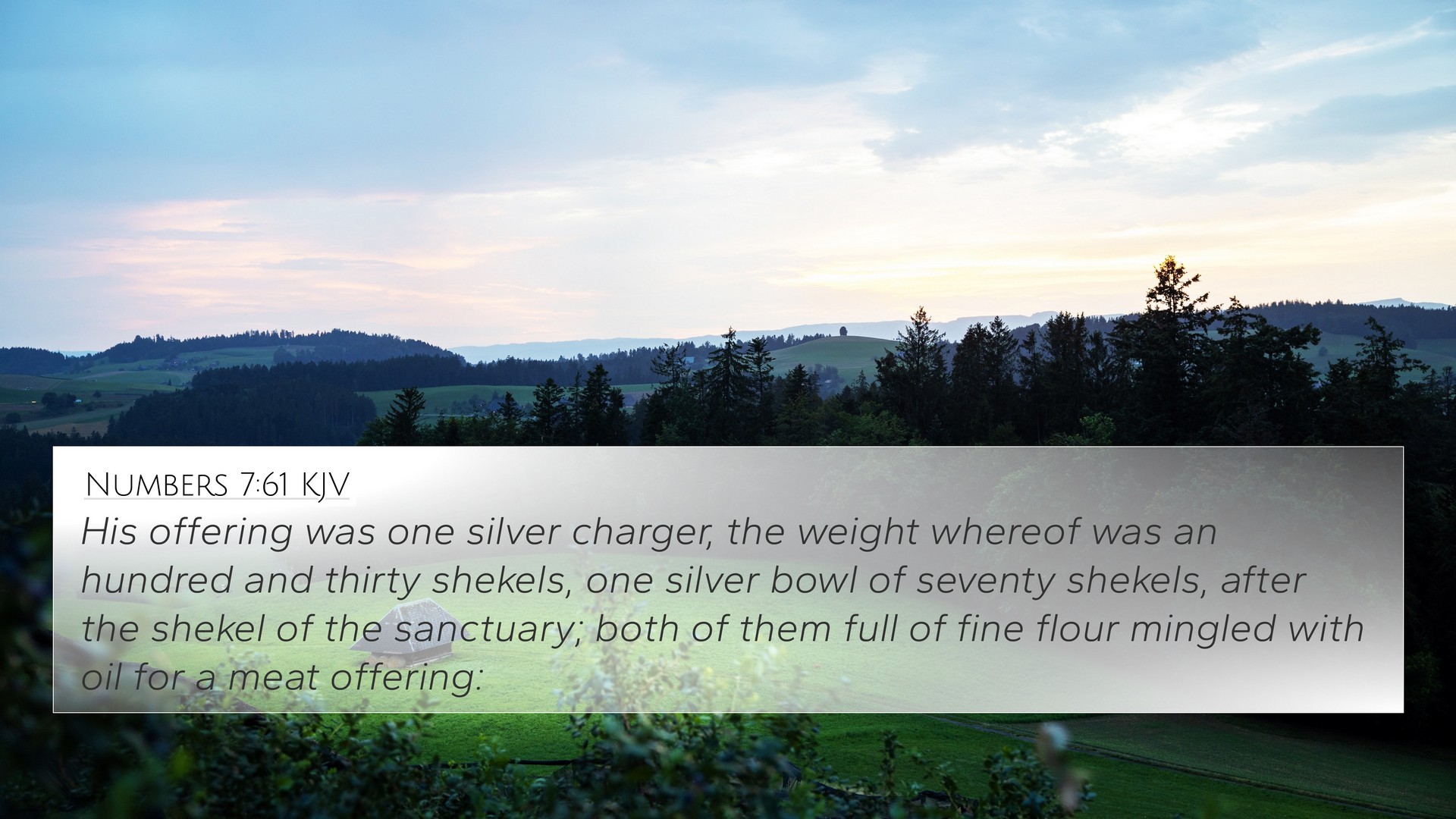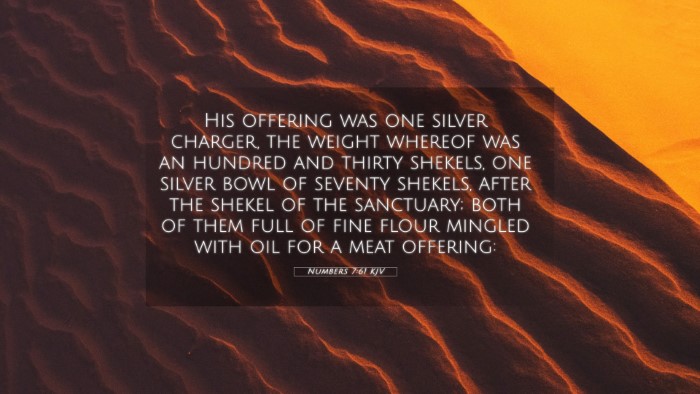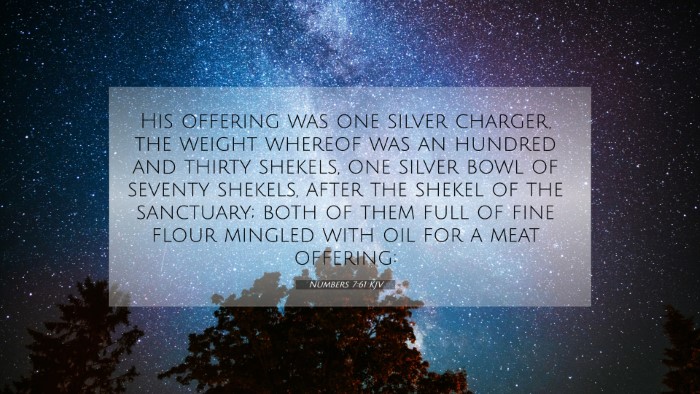Understanding Numbers 7:61
In Numbers 7:61, the verse reads: "And for the sacrifice of peace offerings, two oxen, five rams, five he-goats, and five lambs of the first year: this was the offering of Abidan the son of Gideoni." This particular verse is part of a larger passage where the leaders of Israel bring offerings to the tabernacle during the dedication ceremony.
The verse emphasizes the importance of offerings in the worship practices of the Israelites. It highlights the communal aspect of worship and the leadership's role in presenting offerings.
Commentary Insights
Matthew Henry's Commentary
Matthew Henry notes that the offerings in this chapter serve as a demonstration of reverence and gratitude towards God. The various animals listed are significant as they represent peace offerings, symbolizing harmony and the restoration of the relationship between God and His people. Henry emphasizes that the number and variety of offerings illustrate the abundance of God's blessings and the proper response from His people.
Albert Barnes' Commentary
Albert Barnes points out the historical context of the offerings, describing them as a means of drawing near to God. The specifics of the offerings—two oxen, five rams, etc.—are indicators of the leaders' willingness to worship and seek favor from God on behalf of the community. Barnes underlines that this systematic approach to offerings highlights an organized method of worship in ancient Israel.
Adam Clarke's Commentary
Adam Clarke discusses the symbolism behind the characters of the animals. He argues that these offerings represent the various facets of atonement, thanksgiving, and communion with God. Clarke connects this with New Testament teachings by suggesting that true peace comes not from sacrifices of animals but from the sacrifice of Christ, making references to the fulfillment of the sacrificial system in Jesus.
Bible Verse Cross-References
- Leviticus 3:1-17 - Details regarding peace offerings, showing the significance of these sacrifices.
- Exodus 24:5 - The sacrifices made at the covenant ceremony, illustrating the importance of offerings in establishing God's covenant.
- Numbers 6:14 - Discusses additional offerings associated with the Nazirite vow, indicating the varied offerings in worship.
- 1 Chronicles 29:21 - Celebrates offerings made by David and the people, further linking community and worship.
- Romans 12:1 - Paul's exhortation to present our bodies as living sacrifices, connecting Old Testament sacrifices to New Testament living worship.
- Hebrews 10:1-4 - Discusses the inadequacy of animal sacrifices compared to Christ's ultimate sacrifice.
- Psalm 51:17 - Emphasizes a broken spirit and a contrite heart over ritualistic sacrifice, focusing on the heart behind the offering.
- Matthew 5:23-24 - Jesus teaches about the importance of reconciliating with others before offering gifts at the altar.
- John 1:29 - John the Baptist identifies Jesus as the Lamb of God, signaling the ultimate fulfillment of all sacrificial practices.
- 1 Peter 2:5 - Believers are described as living stones, who are being built into a spiritual house to offer spiritual sacrifices.
Conclusion
Numbers 7:61 serves as a cornerstone for understanding the significance of offerings in the context of Israel's worship and its connection to broader Biblical themes. The worship practices in the Old Testament not only highlight the Israelites’ devotion but also foreshadow the New Testament's fulfillment through Christ's ultimate sacrifice.
Engaging with the ideas of cross-referencing Biblical texts encourages deeper insights into how different parts of scripture relate to one another, offering a richer understanding of God’s plan through both the Old and New Testaments.
Exploring Cross-Referencing
As scholars and believers seek to understand the connections between Bible verses, tools for Bible cross-referencing like Bible concordances, reference resources, and cross-reference guides become invaluable. Methods such as thematic Bible verse connections and comparative Bible verse analysis enrich our understanding and interpretation of scripture.


